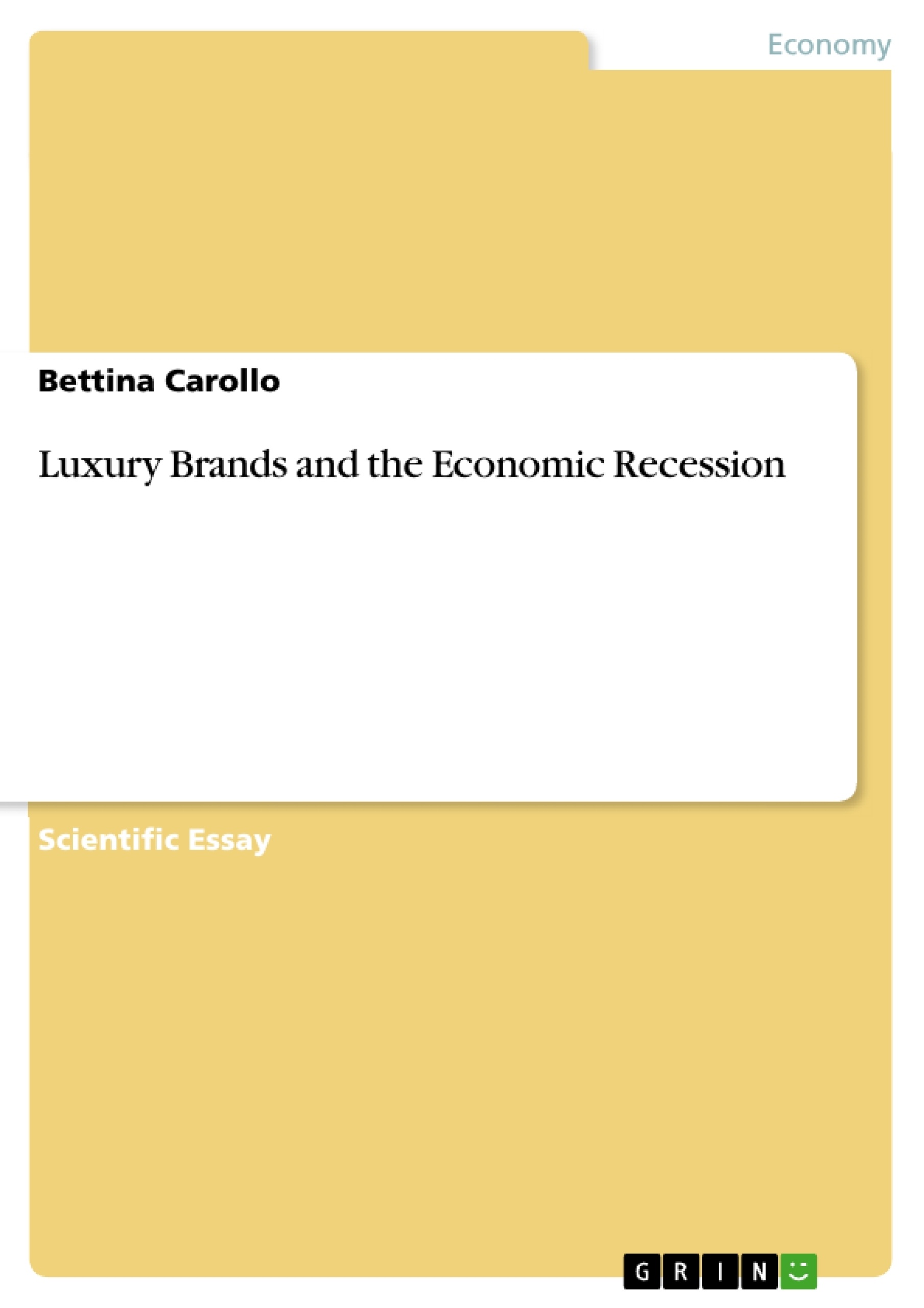Excerpt
CONTENTS
1. Title of the research investigation
2. Introduction
3. Background
3.1 Literature review
3.1.1. Consumer Behaviour
3.1.2. Positioning
4. Research objectives
4.1 Specific research objectives
4.2 Specific research questions to be answered
5. Research design
5.1 Primary Data
5.2 Why interviews will be conducted and to whom?
5.3 Ethics
5.4 Secondary Data
6. Analysing data
7. Time scale
8. References
1. Title of the research investigation
How the Luxury Brands Succeed During an Economic Recession?
2. Introduction
The aim of this research proposal is to better understand the impact that a financial recession period has on the buying power of the customers. In order to narrow the study that could involve many different areas, the emphasis here will be on understanding how the consumer behaviour for the luxury market is affected by a recession. When understanding the consumers’ behaviour a company and organizations can improve their sales figures by focusing on the marketing strategies. It is important to understand how the environment influences these consumers, like their culture and spending capacity (Perner 2010).
Through the proposed research the effect on buying luxury goods propensity will be investigated and how the top clients of luxury brands reacts when a difficult economic period is being broadly experienced in the whole World.
The conclusion will be a result of the research methods, suggested applied and analysed, furthermore reviewing the updated published articles for this current theme.
3. Background
The concept of luxury has been studied and discussed as a contemporary subject in the communication and consumption field, as argued by Chevalier et al. To explain which are the luxury brands, here are some examples for this peculiar market: the luxury jewelleries and watches segment, cosmetics and perfumes, fashion accessories, wines and spirits, luxury automobiles, luxury hotels and tourism, private banking.
According to Chevalier et al, the biggest differences between the luxury companies and the others in the market are divided in three groups:
- Company Size: In the luxury market normally the companies are small comparing to the annual sales of others. However the luxury brands are well respected and recognised. This is also known as brand awareness and consumers are interested in the luxury companies, they want to know what these companies are doing and follow their history.
- Financial Characteristics: in these industry comparing sales figures, as it is common in other industries, can be very challenging and incorrect. Each luxury company can work it sales figures to be composed of vary different elements. While one company can count only the stores sales figures, the other can reflect in its sales figures from the retail stores sales, outlets, export sales and revenue from licensing.
- Time factor: In the car industry for example, the objective is to launch a new car as soon as possible, aiming to obtain the return of the investments after a few months past the launch, or as quick as possible. On the other hand, in the luxury companies launches normally are more time and investments consuming. To launch a luxury perfume for instance it could take more than two years. Luxury goods are exclusive as well as its manufacturing.
Chevalier et at discusses that in the luxury market the products are not consumed. Actually there are no products, only special articles that clients want to purchase and keep. These clients are misnamed consumers, however they will not consume the product and then go back to the store to buy some more. In the luxury market every acquisition of a good is involved with emotion and social satisfaction.
Chevalier et at argues that the luxury clients can be the very wealthy people or everyone who can afford to buy one of these top products. Excluding the millionaires, the categories can be from top-down: Celebrities and Sports Stars, those who have inherited their money and business, those who have made their fortune working and finally the upper-middle class who can afford luxury goods but are more cautious about spending their money.
Their expending capacity depends on how well is the economy going, if they know that their assets drops in value, they will be feeling less disposed to spend.
In the developed and developing countries, more than half of the population can be classified as luxury clients: they have experienced the opportunity of buying at least one luxury good in the past recent years.
3.1 Literature review:
According to Hart (1998), the literature review is vital to acquire a better understanding about the topic, what have been researched and said about it, also to find out what are the main issues in the area. It is expected to be shown in the report that the main theories have been understood, how they have been applied and developed furthermore the criticisms received. The literature review is used to become an expert in the specific area that is being studied.
For the purpose of this study, the aim is to find out what have already been discussed that clarifies the themes here approached, from the study questions to the approach and the report.
In order to understand the luxury clients and this specific market it will be required to understand the consumer behaviour and some other theories.
[...]
- Quote paper
- Bettina Carollo (Author), 2010, Luxury Brands and the Economic Recession, Munich, GRIN Verlag, https://www.grin.com/document/191737
Publish now - it's free






















Comments